Babe Paley's Advice? No Deckled Edges. Ever!
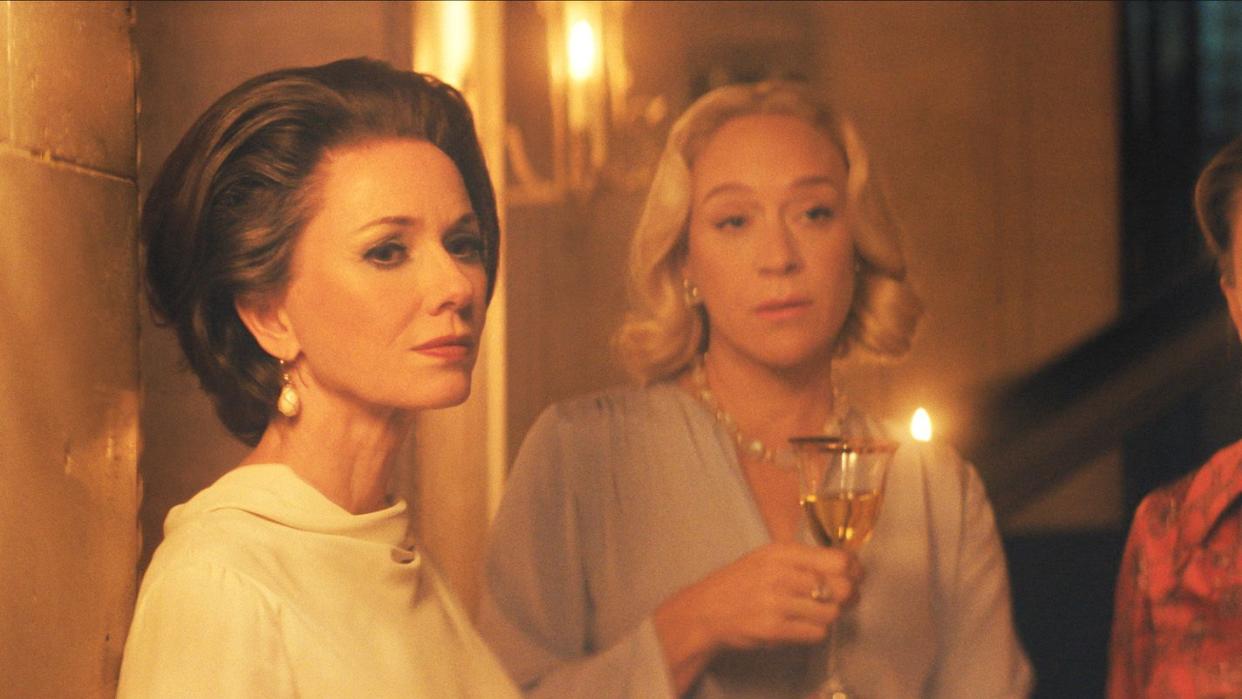
- Oops!Something went wrong.Please try again later.
- Oops!Something went wrong.Please try again later.
- Oops!Something went wrong.Please try again later.
- Oops!Something went wrong.Please try again later.
"Hearst Magazines and Yahoo may earn commission or revenue on some items through these links."
Anyone who thinks that money is what binds Truman Capote's infamous Swans—Babe Paley, C.Z. Guest, Slim Keith, and Lee Radziwill—together is kidding themselves. It's true that tremendous wealth is a factor in their friendship, as is style. But, what reigns supreme in the world of mid-century New York High-Society is not at all material.
Proper decorum is what keeps this flock of Swans together, and the reason why Capote was quickly pecked out of it. "Etiquette is the science of living," Emily Post once wrote. "It embraces everything. It is ethics. It is an honor." Post didn't say this, but the truth is, it was also a way of distinguishing social classes from one another. In Feud: Capote vs The Swans, many of these social cues are touched on. Paley lectures Capote on what kind of stationery invitations should be sent. C.Z. Guest rescinds his invitation to her Thanksgiving in Palm Beach. Fights break out at dinner due to particular topics being brought up (fists were thrown.)
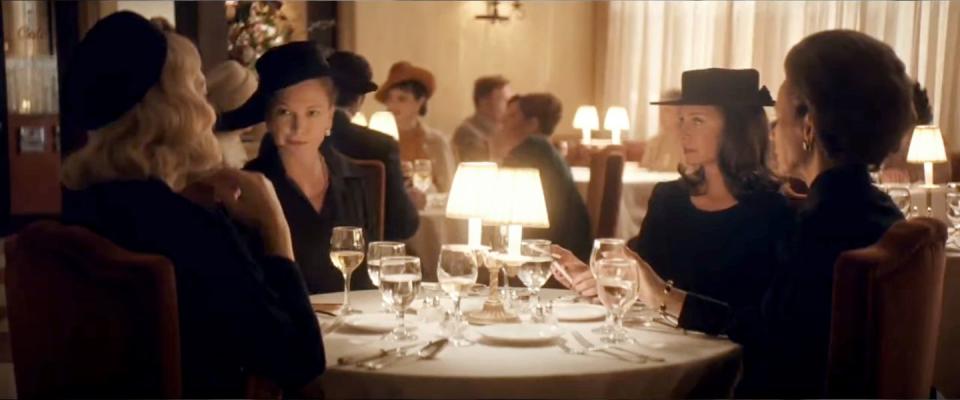
But today, etiquette has loosened up a bit; imagine if your friend or neighbor required you to place a calling card on a silver tray when you wanted to hang out with them. Even though it was Gilded Age decorum, someone doing that today feels...gimmicky. That's not to say etiquette isn't important in the modern age. It very much is. But, which points from Feud: Capote Vs. The Swans are still relevant today?
How to Disinvite A Guest
In episode two of Feud: Capote Vs. The Swans, C.Z. Guest has a moment of softness for Capote. Despite the Swans swearing to one another over lunch at La Côte Basque to ice the novelist out of their circle for publishing "La Côte Basque, 1965" in Esquire, the socialite feels that their course of action is a bit harsh. She ends up inviting Capote to her Thanksgiving dinner in Palm Beach, where all the other Swans will be. Comrade Keith, however, visits Guest to remind her of how offensive Capote's presence will be. Under pressure, C.Z. reconsiders Capote's invitation, calls him, and tells them that she's "sick with a cold" and that the dinner is no longer happening.
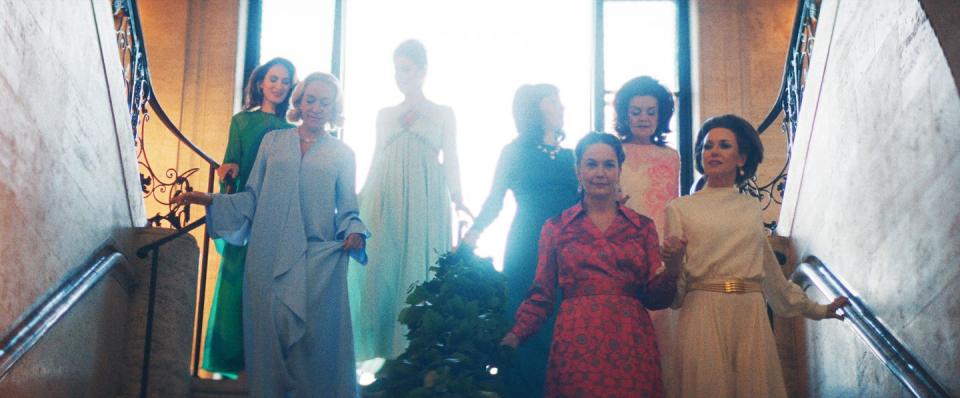
That's not too different from how one should handle it today. "I would tell the other person that there's a change in dinner plans, say a key guest couldn't make it, or that you're rescheduling. Be sure not to post on social media when it happens," Sara Jane Ho, an etiquette expert and star of Netflix series Mind Your Manners tells T&C. According to her, Guest went about it the right way.
According to Ho, whose new book, Mind Your Manners, is out in April, there are three tiers of rescinding an invitation. At one end of the spectrum, you disinvite someone in a way that doesn't offend the no-longer guest. At the other end you take back an invitation and make it clear that you're not prepared to see them. The middle ground is giving an excuse to that person and knowing that they will know why.
As to when and why someone should disinvite a guest is subjective. "It's how the host feels," Ho says. "If they did something outrageous, or majorly offended another guest, I think that's perfectly fine to disinvite someone."
Does Your Social Stock Go Up and Down With Card Stock?
Episode three of Feud portrays Capote's Black & White Ball at the Plaza Hotel. The event marked the height of the writer's social standing, with international aristocrats dancing and socializing in the same room as downtown artists. (However, in Laurence Leamer's book, Capote's Women, it was noted that the Gianni Agnelli's were not fans of this).
In the episode, each Swan believes that they will be the guest of honor for Capote's ball. "We made New York the capital of the world, the center of everything," Keith says. In a subtle attempt to campaign for herself, Paley offers Capote some decorative advice: invitations must be on 100-pound matte stock, individually cut, sand dollar color because, according to her, "ivory is overused," and always crisp, never deckled. "Truman Capote Cordially invites you to a ball celebrating Madame X," Paley writes on the invitation. "That X is where Babe's name goes, right?" asks Bill Paley. "All will be revealed," Capote says. The honor ended up going to Katherine Graham of the Washington Post.
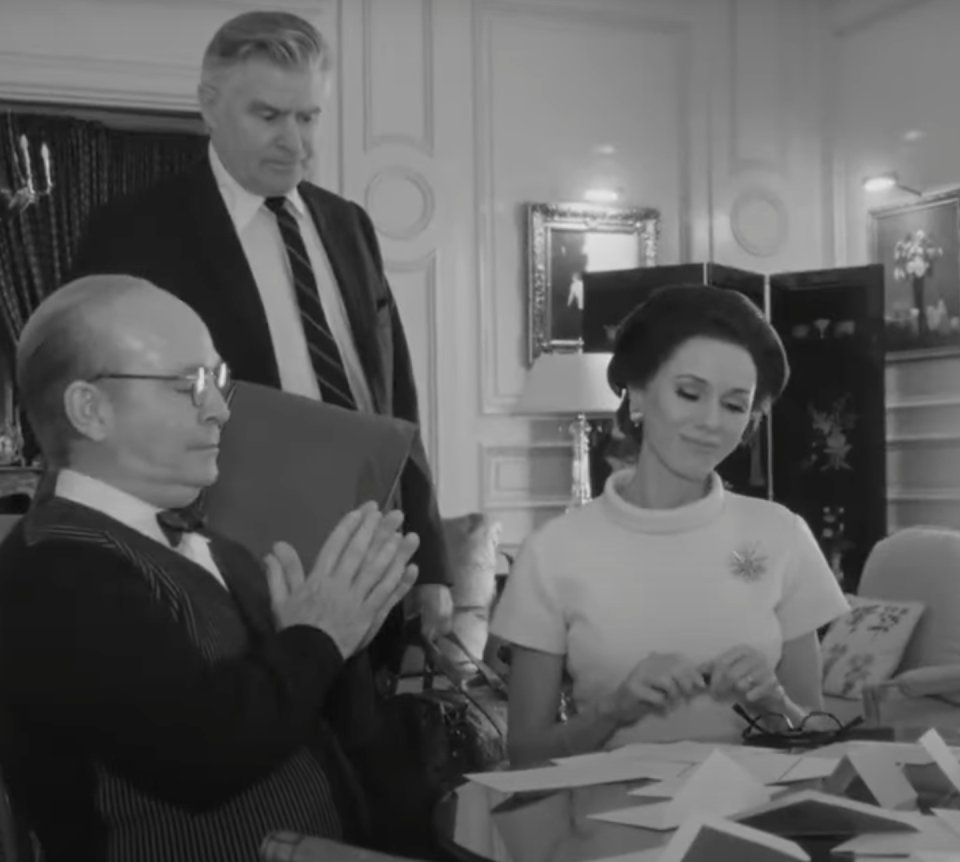
Nonetheless, Paley brings up an interesting point: should all invitations be physical and follow this aesthetic template? "Most of these etiquette rules around stationery have gone by the wayside," Marcie Pantzer, founder of luxury stationery brand Dear Annabelle, tells T&C. "I do think certain styles come in and out of vogue, and I will say, deckled edges don't seem to be very 'in' at the moment. I love paying attention to what's trending in stationery, but I think it is best to follow your own rules and stay true to your own sense of style when picking out an invitation."
Fair enough, but, unlike Paley's world, digital invitations are now the go-to method for hosts and hostesses. Some will design a digital flyer and send them out via text or Instagram DM, while others will use sites like Paperless Post, Evite, and Electragram that come with RSVP trackers. Are digital invitations a faux pas? A sign of laziness? Or are they just a result of the times?
"I absolutely love getting an invitation in my mailbox and I believe there is no better way to set the tone for a fabulous party," Pantzer says. "There are definitely occasions that don't call for such formality—a last-minute dinner party, a kid's birthday bash—and in these cases, a digital invite is the perfect quick, low-cost option. But I must admit that I'm a paper girl at heart."
Are Religion and Politics Really Off the Table?
Here's an age-old question: what are appropriate topics to bring up at dinner? After Capote gets disinvited from Guest's Thanksgiving, the writer ends up spending the holiday with Joanne Carson and his lover, John O'Shea. After a few drinks, dinner turns sour and Capote begins to dish O'Shea's dirty laundry in front of everyone. O'Shea gets aggressive, jabs Capote a few times, and guests are left with a very uncomfortable situation. Capote commits a similar crime in the next episode after he passive-aggressively dishes about Graham in public and in front of cameras. Graham, in return, serves major side-eye.
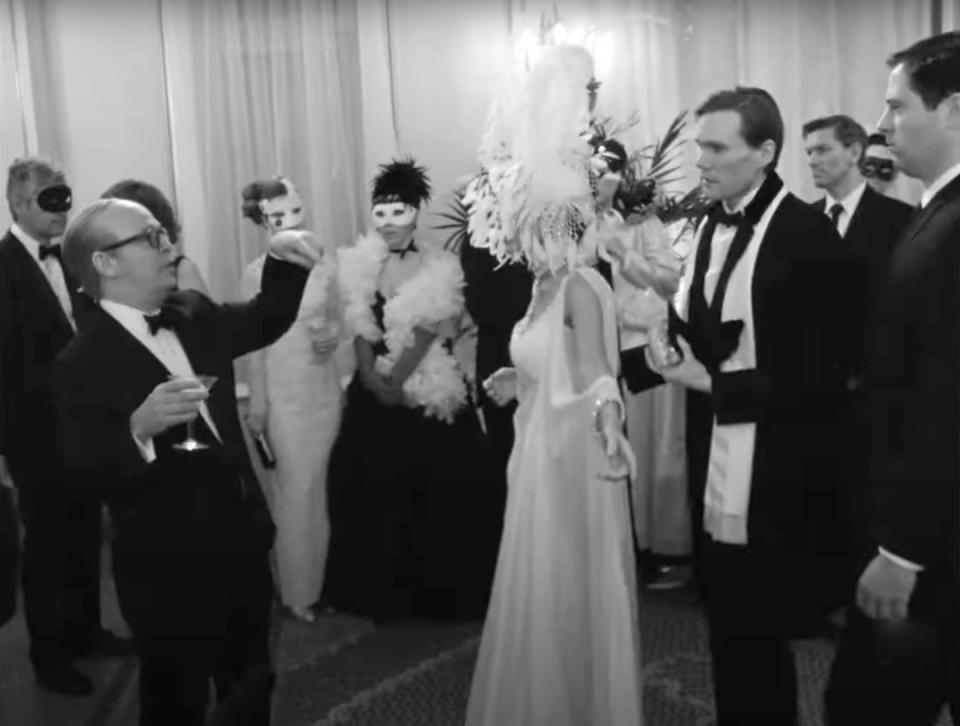
The etiquette surrounding what kind of topics can be brought up at dinner without being offensive is murky, but this editor would advise simply to read the room. How well do you know others at the dinner? Speaking on religion and politics runs the risk of offending another guest or, worse, the host. If you're getting to know those around you, keep it mild.
A personal anecdote: once, a dinner ran so dry that another guest decided to bring up a provocative political critique, knowing that it had the potential to make others uncomfortable. But, like a doctor performing electrical cardioversion, the dinner was once again struck with energy and revived. Sometimes, a provocative touch leads to lasting impressions. All hosts should want that.
You Might Also Like

